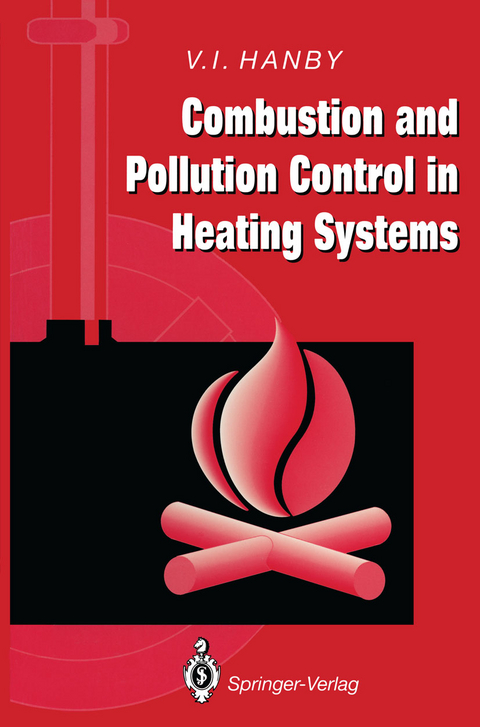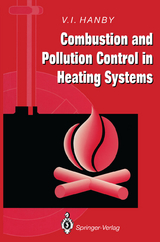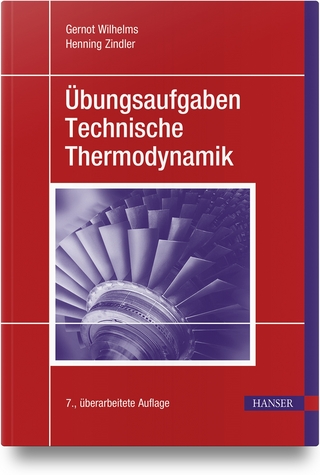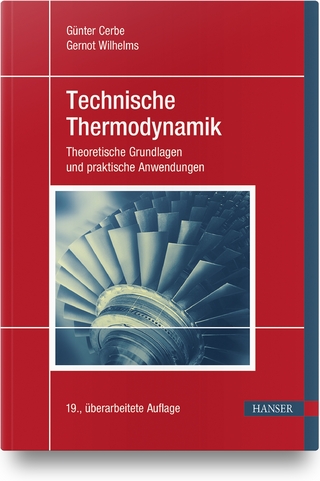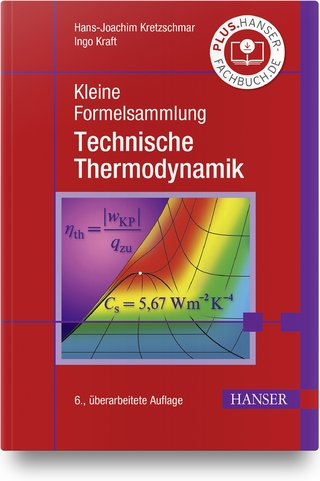Combustion and Pollution Control in Heating Systems
Springer Berlin (Verlag)
978-3-540-19849-9 (ISBN)
The combustion of hydrocarbon fuels in heating systems is an important topic for students taking courses in building services and related areas including mechanical engineering. The control of pollution from this source is of increasing importance to planners, architects, builders, commercial and industrial property owners and legislators. Combustion and Pollution Control in Heating Systems provides a comprehensive coverage of this environmentally sensitive topic for the first time. The fundamental principles of the combustion process are explained. Special attention is given to the processes which take place in boilers. The author has extensive experience in teaching this subject at the Universities at Loughborough and Liverpool.
Combustion is very much an interdisciplinary topic, drawing together elements of chemistry, fluid mechanics and heat transfer. It is an ingredient in many undergraduate degree programmes, ranging from a pivotal role in fuel science through to a component part of courses in chemical, process and building services engineering. For many students in those disciplines where combustion in heating plant is an important part of their studies, there are often problems in coming to grips with the basic principles underlying the combustion of hydrocarbon fuels. In particular, the concepts of chemical and related thermodynamic changes can prove difficult to assimilate. The scientific literature dealing with combustion tends to be rather polarised, with a wealth of literature aimed at the specialist reader, but at a basic level the fundamentals of this important process are often treated rather tersely in textbooks on thermodynamics. The objective of this book is to provide an introduction to the basic principles of the combustion of hydrocarbon fuels in heating plant for buildings and industrial processes. In those chapters where practice in problem solving can make a positive contribution to understanding, some numerical problems have been included. Acknowledging the ever-widening use of computers in technical education, a number of algorithms which can be easily coded up for solving numerical problems have been incorporated in the text. These can prove particularly useful in, for example, the calculation of certain fluid properties, either for use in hand calculation or for incorporation into larger programs.
1 The Combustion of Hydrocarbon Fuels.- 1.1 Introduction.- 1.2 The Combustion Process.- 1.3 The Complete Combustion Reaction.- 1.4 Quantification of the Combustion Reaction.- 2 Stoichiometric Calculations.- 2.1 Applications of the Combustion Equation.- 2.2 Combustion Air Requirements - Gaseous Fuels.- 2.3 Flue Gas Composition - Gaseous Fuels.- 2.4 Combustion Air Requirements - Solid and Liquid Fuels.- 2.5 Combustion Products - Solid and Liquid Fuels.- 2.6 Practical Significance of the Flue Gas Composition.- 2.7 Sub-stoichiometric Combustion.- 2.8 Problems.- 3 Heat Release in Combustion.- 3.1 Introduction.- 3.2 Constant-pressure Combustion.- 3.3 Enthalpy of a Mixture of Gases.- 3.4 Enthalpy of Combustion.- 3.5 Constant-volume Combustion.- 3.6 Internal Energy of Combustion.- 3.7 Relationship between ?H25 and ?U25.- 3.8 Calorific Values.- 3.9 List of Symbols.- 3.10 Problems.- 4 Flame Temperature.- 4.1 Energy Balance on a System.- 4.2 Adiabatic Flame Temperature.- 4.3 Specific Heats of Gases.- 4.4 Calculation Algorithm.- 4.5 Calculated Adiabatic Flame Temperatures.- 4.6 References.- 4.7 List of Symbols.- 4.8 Problems.- 5 Equilibrium Composition of Flames.- 5.1 Introduction.- 5.2 Chemical Equilibrium.- 5.3 Calculation of the Equilibrium Composition.- 5.4 Dissociated Flame Temperature.- 5.5 Dissociation with Hydrocarbon Fuels.- 5.6 References.- 5.7 List of Symbols.- 6 Efficiency of Combustion Plant.- 6.1 Plant Efficiency.- 6.2 Direct Determination of Efficiency.- 6.3 Inferential Measurement of Efficiency.- 6.4 Efficiency and Flue Gas Temperature.- 6.5 Flue Gas Dew Point.- 6.6 Efficiency of a Condensing Boiler.- 6.7 References.- 6.8 List of Symbols.- 6.9 Problems.- 7 Gaseous Fuels.- 7.1 Introduction.- 7.2 Natural Gas.- 7.3 Town Gas (Coal Gas).- 7.4 LiquefiedPetroleum Gas (LPG).- 7.5 Combustion of Gaseous Fuels.- 7.6 Gas Burners.- 7.7 References.- 7.8 List of Symbols.- 8 Liquid Fuels.- 8.1 Occurrence and Processing.- 8.2 Properties of Oil Fuels.- 8.3 Combustion of Liquid Fuels.- 8.4 Pressure Jet Burners.- 8.5 Rotary Cup Burners.- 8.6 Twin-fluid Atomisers.- 8.7 Storage of Liquid Fuels.- 8.8 References.- 9 Solid Fuels.- 9.1 Introduction.- 9.2 Coal Classification.- 9.3 Coal Properties.- 9.4 Coal Combustion.- 9.5 Coal Storage and Handling.- 9.6 References.- 10 Emissions from Combustion Plant.- 10.1 Environmental Considerations.- 10.2 The Greenhouse Effect.- 10.3 Carbon Dioxide Emissions.- 10.4 Carbon Monoxide.- 10.5 Oxides of Nitrogen.- 10.6 Oxides of Sulphur.- 10.7 Particulate Emissions.- 10.8 List of Symbols.- 10.9 References.- 11 Flues and Chimneys.- 11 Functions of the Flue System.- 12 Chimney Heat Transfer.- 13 Pressure Loss.- 11.4 Chimney Location.- 11.5 List of Symbols.- 11.6 References.
| Erscheint lt. Verlag | 4.4.1994 |
|---|---|
| Zusatzinfo | X, 144 p. 5 illus. in color. |
| Verlagsort | London |
| Sprache | englisch |
| Maße | 155 x 235 mm |
| Gewicht | 257 g |
| Themenwelt | Naturwissenschaften ► Physik / Astronomie ► Thermodynamik |
| Schlagworte | Combustion • Control • Emission • Environment • heating plant • Heating System • heat transfer • Heizung • hydrocarbon fuels • mechanical engineering • pollution • pollution control • Pressure • thermodynamics • Verbrennung |
| ISBN-10 | 3-540-19849-0 / 3540198490 |
| ISBN-13 | 978-3-540-19849-9 / 9783540198499 |
| Zustand | Neuware |
| Informationen gemäß Produktsicherheitsverordnung (GPSR) | |
| Haben Sie eine Frage zum Produkt? |
aus dem Bereich
